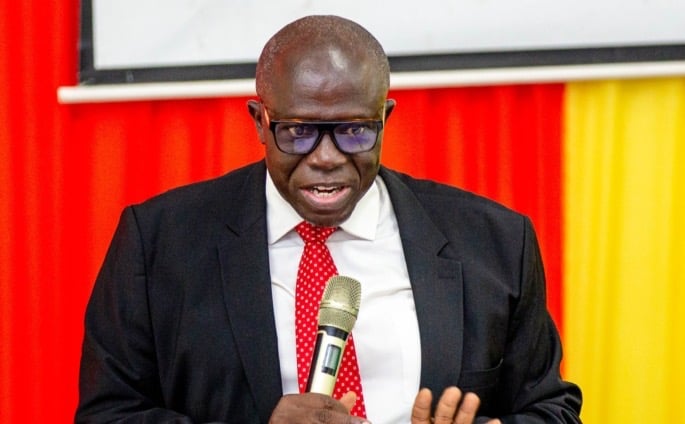Justice Sir Dennis Dominic Adjei, a nominee for the Supreme Court of Ghana, has brought to light a significant legal inconsistency concerning the age of consent for sex and marriage within the country’s legal framework. He argues that the current laws create a problematic two-year gap where individuals aged 16 and 17 can legally consent to sexual activity but cannot legally marry until they reach 18. This discrepancy, Justice Adjei contends, raises questions about the legal protection and well-being of young people within this age bracket. He advocates for aligning the age of consent for sex with the legal age for marriage at 18, promoting a consistent legal approach to sexual activity and marital commitments for young adults.
The crux of Justice Adjei’s argument lies in the potential risks and vulnerabilities this legal gap creates. Allowing 16 and 17-year-olds to engage in consensual sex while simultaneously prohibiting them from marriage effectively places them in a legal grey area. They are granted the legal agency to make decisions about their sexual health but are denied the legal framework to formalize those relationships through marriage. This disconnect, he suggests, could lead to various social and legal complications, including issues related to parental responsibility, child welfare, and the potential for exploitation. Furthermore, the gap could create confusion among young people regarding the legal boundaries and responsibilities associated with sexual activity.
Justice Adjei’s proposal to harmonize the age of consent for sex and marriage at 18 aims to address this legal ambiguity and provide a clear and consistent legal framework. By aligning these ages, he argues, the law would send a strong message about the importance of delaying sexual activity until adulthood, a time when individuals are generally better equipped to handle the emotional, physical, and social consequences associated with such decisions. This alignment would also simplify the legal landscape, eliminating potential confusion and providing a unified standard for both sexual activity and marital commitments.
Furthermore, Justice Adjei commends the existing defilement laws in Ghana, which criminalize sexual activity with individuals under the age of 16, irrespective of gender. He notes the neutrality and fairness of these laws, emphasizing their protective role in safeguarding children from sexual exploitation. By explicitly prohibiting sexual contact with minors under 16, the law clearly defines boundaries and provides a legal recourse for victims. This clarity, he argues, contrasts with the ambiguity present in the laws concerning 16 and 17-year-olds, where consent is legally recognized, but the option of marriage is unavailable.
The crux of Justice Adjei’s position centers on the idea that delaying sexual activity until the legal age for marriage would be beneficial for young people in several ways. He believes that this delay would not only offer increased legal protection but also provide young individuals with more time to focus on their education and personal development. By postponing the complexities and responsibilities associated with sexual relationships and marriage, young people would have greater opportunities to pursue educational goals, develop life skills, and establish a stronger foundation for their future. This approach, he posits, would contribute to overall societal well-being by empowering young people to make informed decisions about their lives and futures.
In essence, Justice Adjei’s comments during his vetting highlight a significant area of concern within Ghana’s legal framework. His proposal to align the age of consent for sex with the legal age for marriage at 18 represents a call for greater legal consistency and enhanced protection for young people. By closing the existing two-year gap, he aims to create a clearer, more equitable, and ultimately more beneficial legal environment for young adults in Ghana as they navigate the complex terrain of sexual relationships and marital commitments. His emphasis on the importance of education and personal development further underscores his belief in the potential of young people and the need for a legal framework that supports their growth and well-being.














